Backpacking in El Salvador is a breath of fresh air. I now report on the day that I was the only tourist touring the ruins of Casa Blanca in the town of Chalchuapa. Also here in the town of Chalchuapa I visited an indigo workshop, got a full demonstration in detail, checked out the city’s main sights and attractions and visited Ruinas de Tazumal. Backpacking in El Salvador needs to be more popular, I really recommend it so here’s an overview of touring the ruins of Casa Blanca, Chalchuapa.
How to get to Casa Blanca, Chalchuapa
It’s not as hard as you might think. Speak a bit of Spanish and you can get by so easily in El Salvador. The locals love it, they are friendly, approachable and helpful. Not once have I met a rude Salvadorian when I’ve approached them in the street for help. Time is of no relevance to them – they will help you and give you their time. And here’s how I got to Chalchuapa.
I was based in Santa Ana for 2 nights at the Hostal Casa Verde (also the best hostel in El Salvador). From the hostel, I walked to the main bus station in town, which is near the Mercado Colon and Parque Colon. The bus terminal is called Terminale Buses Francisco Lara Pineda. However, the actual bus to Chalchuapa doesn’t actually leave from the terminal itself, but it’s a good landmark to get there by. Head through the bus station until you come to the main Avenida San Antonio. On the corner where it meets 18 Avenida Sur, there are a few yellow taxis. It’s like a taxi stand. On the other side of the street and facing away from the town the Bus number 218 will pull up for a few minutes, wait until it’s full and then head off to Chalchuapa.
The bus says number 218 on the front as well as Chalchuapa, and if in doubt just ask the driver or the conductor – they will help. Tell them you are heading to Casa Blanca in Chalchuapa. The bus costs 25 cents and takes around 40 – 45 minutes.
As you reach the town of Chalchuapa, the bus veers to the left at an obvious junction on the carriageway. This is where you want to get off if you are making Casa Blanca your first point of interest in the town (or you can continue and see the town first, as well as Ruinas de Tazumal). So get off on this corner and take the right hand part of the fork/junction. Simply look on the right hand side and you will see a sign and the entrance to Casa Blanca. It’s about 100 metres on the right, maximum. And you’re here!
Arrival at Casa Blanca, Chalchuapa
Once you arrive greet the policemen that man the front, they might not see many foreign tourists (I was the only one that day) but they will know what you are here for. You meet the lady that works there, pay her $3 US to enter and you’re now inside the Casa Blanca complex. Local people only need to pay $1 US. Don’t question this – I’m happy to pay and you should be too. For the price, everything you get within is included. Opening hours are 9am – 5pm Tuesday to Sunday.
The Indigo Workshop and Demonstration
You might have already read that I toured the indigo workshop and got a demonstration at Casa Blanca, so you should aim to do that as well while you’re here. At the back of the main building, on the right hand side you find the Indigo Workshop. I was fascinated by it. The process seems oh so simple when you hear all about it but this post will focus on the ruins themselves.
Casa Blanca Ruins
Casa Blanca obviously means “white house”. It’s an ancient archaeological site and also has a museum. For $3 US everything is included. First up I visited all the rooms in the museum, each room has a different name.
1. Mesoamerica y Chalchuapa
The first room contains maps and pottery and serves as an introduction to the geographical area of settlements similar to Casa Blanca, and I visited a few of them myself including Palenque, Teotihuacan, Joya de Ceren, Tazumal and Monte Alban.
2. Muerte y Sacrificio
Room 2 is all about death and sacrifice. There is a rumour that a mass sacrifice once occurred here at Casa Blanca and some drawings and findings from research on this. While this is world’s apart, I did have a recollection of my time touring mass suicide spot Masada as I backpacked through Israel a year ago.
3. Arquitectura
The third room in the museum part focused on architecture and what the ruins once looked like – included are maps, pictures, relics and information.
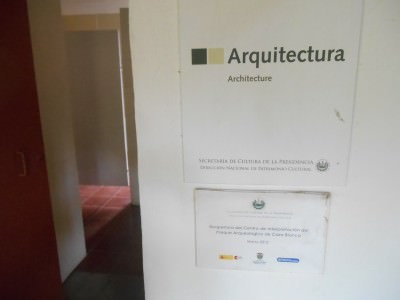
Room 3 focused on architecture of the settlement itself including depictions of what it looked like and plans of the grounds.
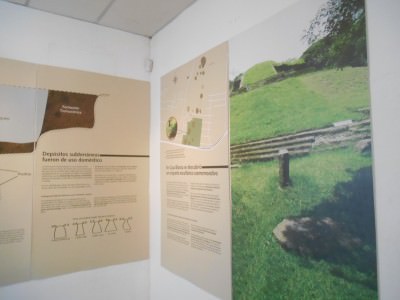
Room 3 focused on architecture of the settlement itself including depictions of what it looked like and plans of the grounds.
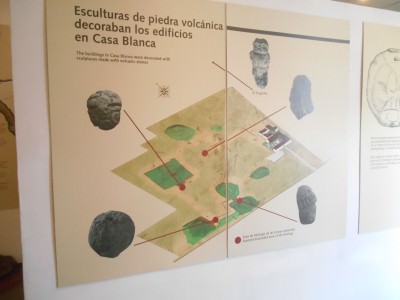
Room 3 focused on architecture of the settlement itself including depictions of what it looked like and plans of the grounds.
An overview of Casa Blanca
So once you’ve read a bit of that, head on the path around Casa Blanca. The complex here at Casa Blanca consists of several pyramids dating back to the Late pre-classic period (500 BC to 250 AD) and the Classic period (AD 250–900). The ruins here at Casa Blanca are part of the Chalchuapa archaeological zone and they display influences from the Olmecs and from Teotihuacan (I also visited Teotihuacan in Mexico and will write about it at some point).
Casa Blanca is closely related to the ruins of Tazumal (also in Chalchuapa) and San Andres. The naming of the place is simply because the government of El Salvador bought the land where the Casa Blanca coffee plantation was!! It’s a new name, not an ancient name.
There are many pyramids at Casa Blanca but only two have been partially restored. The first part you come to on your walk is part of the ruins that have been excavated and you can see ash here – the result of an eruption from Ilopango volcano.
On round the loop (it’s an obvious walk), there are two other prominent pyramid shaped Mayan structures, grass has grown dramatically over both though local historians are always trying to improve the site.
The ruins are protected by fences and so you shouldn’t walk on the pyramids themselves. I was the only tourist at Casa Blanca when I visited.
I’ll aim to get a load more posts up on El Salvador – it’s my last night here and I’ve covered the following places:
– San Salvador
– Sonsonate
– Barra de Santiago/Pacific Coast
– Mangrove Forest
– Santa Ana
– Tazumal
– Casa Blanca
– Chalchuapa
– Puerta del Diablo (Devil’s viewpoint)
– Nejapa (for the crazy fireball festival)
– Ruinas de San Andres
– Joya de Ceren
– Chinamas (arrived here at the border)
So plenty to keep me writing and writing!!!
My videos from Casa Blanca:

 : Touring the Ruins of Casa Blanca, Chalchuapa
: Touring the Ruins of Casa Blanca, Chalchuapa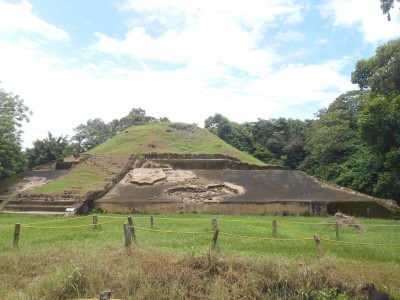
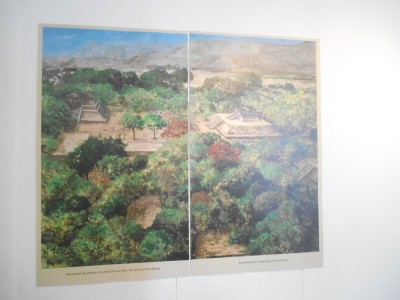
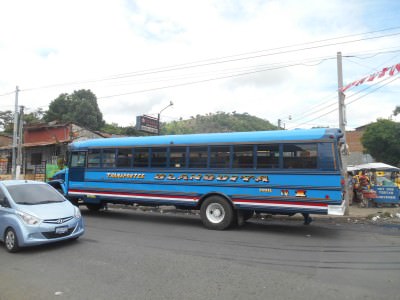
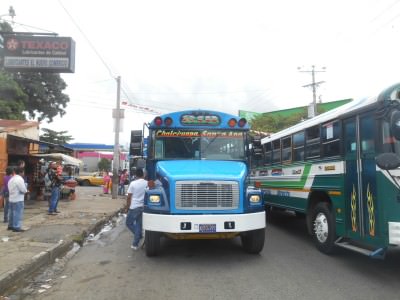
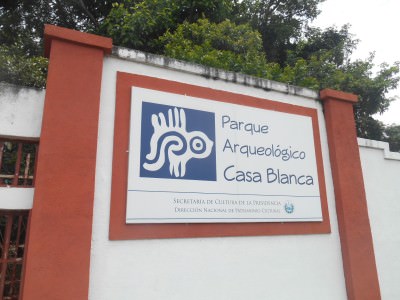
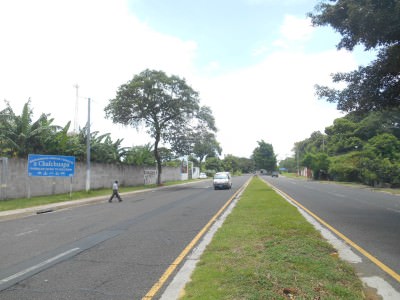
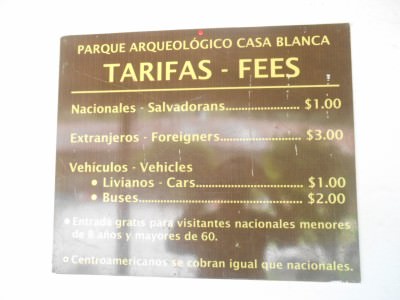
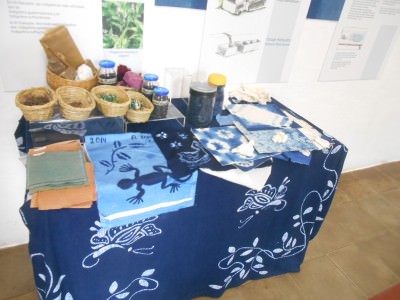
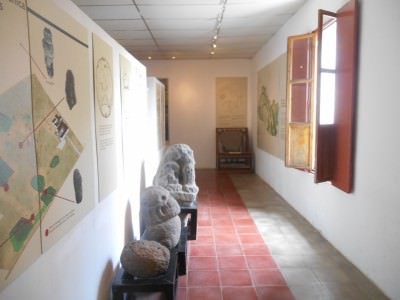
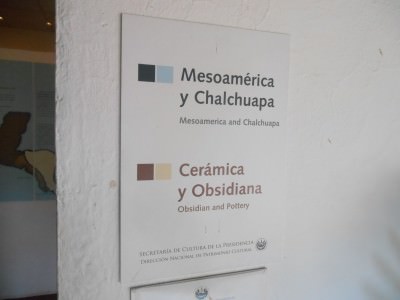
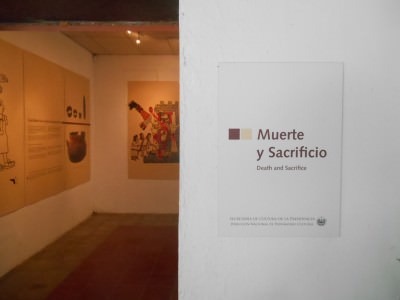
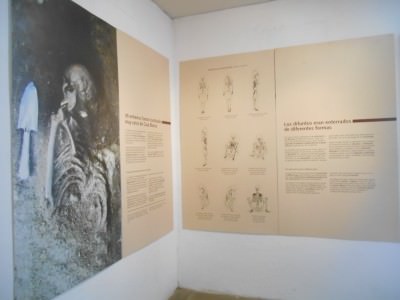
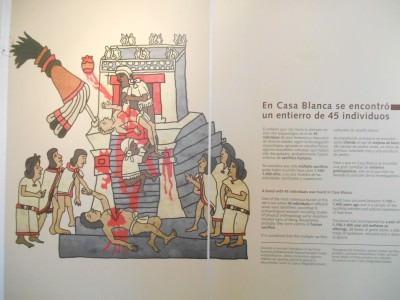
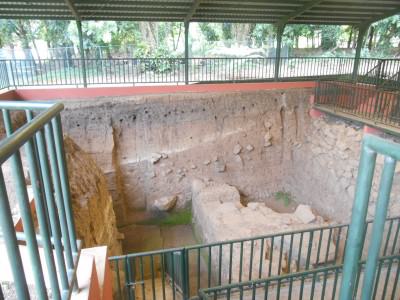
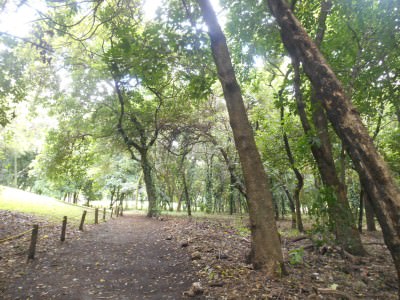
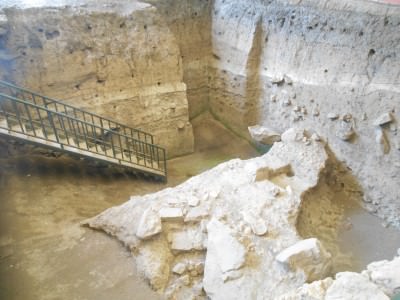
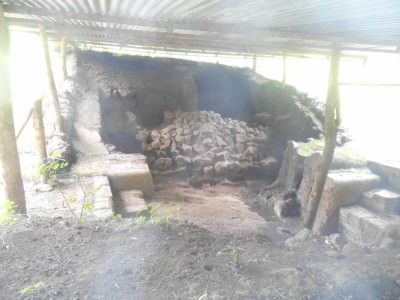
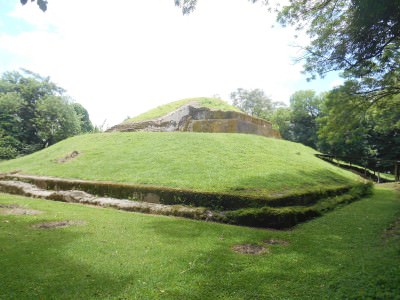
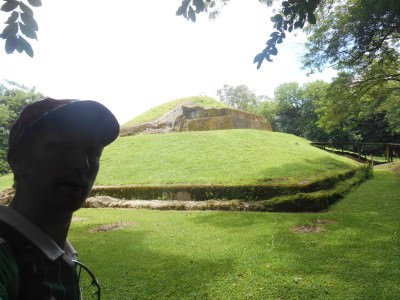
1 thought on “Backpacking in El Salvador : Touring the Ruins of Casa Blanca, Chalchuapa”
: Touring the Ruins of Casa Blanca, Chalchuapa”